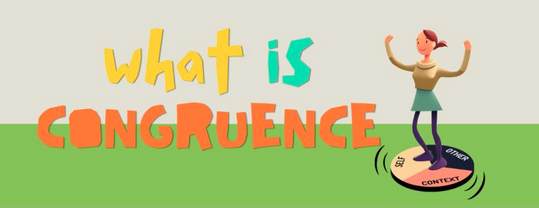
At its very simplest, you might think that congruence means “say what you mean and mean what you say.”
However, that definition has real limitations. Consider a conference session I attended. Brad, a consultant, stood at the front of a packed room, and shared stories of his technical prowess and consulting successes.
He described one engagement where he found the technical practices lacking: “I looked at how those people were working and told them that with their skills they were lucky to be employed,” he bragged. He seemed proud that his harsh critique made people cry.
He meant what he said, but he wasn’t congruent.
Every interaction needs to balance three sets of concerns:
- One’s own needs, capabilities, and concerns (self)
- The needs, capabilities, and concerns of anyone else involved (other)
- The situation, including roles, relationships, projects, priorities, system of work, company, and market pressures, etc. (context)
The people Brad judged inadequate may not have had excellent technical skills. Brad ignored what might contribute to that—perhaps the system of work or hiring and training practices within the organization. And he certainly ignored that the people he criticized were worthy of basic respect.
Congruence—balancing self-other-context—leads to better problem-solving and more creativity. To say nothing of better relationships.
It might have made Brad feel superior to denigrate this client’s employees, but I doubt it helped him achieve his client’s goals.
Congruence—balancing self-other-context—leads to better problem-solving and more creativity. To say nothing of better relationships.
I admit I don’t always manage this balance perfectly. Everyone gets knocked off balance at some point. I try to recognize the signs. Feeling judgmental—like Brad—is a big red flag it’s time for a reset.
Then, I remind myself to get curious about what might contribute to the situation. I try to see from another person’s point of view and look at the context again.
That’s usually enough to get back into a space of creative problem-solving.
What helps you notice you’re off balance? What do you do to regain equilibrium and creativity?
by Esther Derby